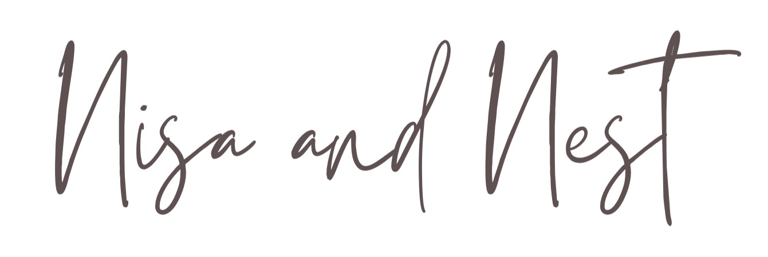Hayā is More Than a Dress Code
A Reflection on Hayā in a World of Exposure
NISA REFLECTIONS
Nisa and Nest
7/23/20254 min read
Hayā is More Than a Dress Code
When we think of the women who walked before us — the Mothers of the Believers, the noble Sahābiyāt, the righteous women whom Allah elevated in both this world and the next — we often envision long flowing garments, lowered gazes, and quiet dignity. But to reduce their beauty to fabric alone is to miss the essence of their strength. What made these women extraordinary was not simply how they dressed, but the inward light that drove their outward expression — their taqwā, their unwavering humility before their Lord, and their courageous submission to Him in every facet of life.
They did not compete for the gaze of the world. They did not perform for fleeting praise or chase the approval of society. They lived for something — for Someone — greater. Their modesty was not an aesthetic; it was a manifestation of their deep God-consciousness. They were not loud in appearance, yet their presence shook empires. They were not decorated for public display, yet they were adorned with dignity, with sincerity, with a strength that transcended time.
Today, in a world that profits from exposure and glorifies visibility, modesty can feel like a quiet rebellion. It is a choice to resist commodification, to push back against the idea that a woman’s value lies in what can be seen, consumed, or praised. In a culture that urges women to reveal more, perform more, and exist for the entertainment and consumption of others, modesty is not weakness — it is sacred resistance. It says:
“I am not here for your eyes. I do not belong to your gaze.
I belong to Allah, and I choose to guard what He made sacred.”
Allah, in His infinite mercy and wisdom, gave us a framework of modesty not to restrict us, but to dignify us.
He commanded believing women in the Qur’an:
“O Prophet, tell your wives and your daughters and the women of the believers to bring down over themselves part of their outer garments. That is more suitable so that they may be known [as believing women] and not be harmed.”
[Sūrat al-Ahzāb 33:59]
This verse is not simply about clothing — it is about identity. Allah honors women by giving them a distinct, recognizable presence rooted not in sexual appeal, but in spiritual purpose. To cover is not to disappear — it is to be known for who you truly are: a woman of īmān, a servant of the Most High, a soul that shines beyond the skin.
True modesty is not the erasure of femininity, but its refinement. It does not strip a woman of her beauty; it redefines it. In Islam, beauty is not measured by inches of skin or the shape of a body — it is measured by the radiance of the heart, the sincerity of action, the purity of intent.
The Prophet ﷺ said:
“Indeed, Allah does not look at your outward appearance or your wealth,
but He looks at your hearts and your deeds.” [Muslim]
And who embodied this more than the Prophet ﷺ himself? The most honored human being to ever walk this earth — the one upon whom angels descended and revelation came — was also the most modest. He ﷺ walked humbly, lowered his gaze, and never saw himself as above anyone. His character was gentle, his presence was noble, and his modesty was deeper than physical appearance — it was the very fabric of his being.
It was said about him:
“The Prophet ﷺ was more modest than a veiled virgin in her private chamber.” [Bukhārī]
If he, the greatest of creation, was defined by hayāʾ — then modesty is not weakness, it is prophetic strength.
Modesty is not about perfection; it is about direction. It is about turning the heart toward Allah and asking, “What does He love?” before asking what the world will applaud. It is about choosing sincerity over spectacle, privacy over performance, and substance over surface. It is about knowing that Allah sees us in every moment — and that is enough.
To the woman who wears her hijab with love, who covers not just her body but guards her speech, her eyes, her intentions — know that you are seen by the One who matters most. To the woman who resists trends that conflict with her values, who chooses humility when the world promotes vanity, who protects her heart like a jewel — you are honored, even if the world forgets you. Because what is unseen by people is never lost to Allah. What you guard for His sake will shine in His presence.
In a time where exposure is currency and self-display is often mistaken for empowerment, modesty feels countercultural. But remember — so did every act of faith in history. True modesty is not weakness. It is strength of the highest order. It is rooted in knowledge, cultivated in love, and sustained by submission to the One who created us.
And it is not only about how we dress. It is how we walk, how we speak, how we carry our souls. It is in the choice to avoid gossip, to lower our gaze, to keep our deeds between ourselves and our Lord. It is in the purity of our hearts and the sincerity of our worship.
The Prophet ﷺ taught us:
“Allah is modest and generous. When His servant raises his hands to Him in supplication -
He feels shy to return them empty.” [Tirmidhī]
Imagine that: Our Lord — in His majesty and power — is shy to turn us away. What, then, should our modesty toward Him look like?
So let us wear our modesty like a crown — not with arrogance, but with gratitude. Let us raise daughters who are proud to be covered, proud to be devoted, proud to stand out in their love for Allah. Let us create spaces where modesty is not mocked but magnified, where women feel safe not because they are hidden, but because they are honored.
Let us live modestly, not just dress modestly. Let us be women who are clothed in humility, guided by taqwā, and adorned with sincerity. Because in the eyes of the world, we may be invisible — but in the sight of Allah, we are radiant.
And what we choose to hide for His sake will one day shine brighter than we can imagine — in gardens where no eye has seen, no ear has heard, and no heart has ever conceived.


